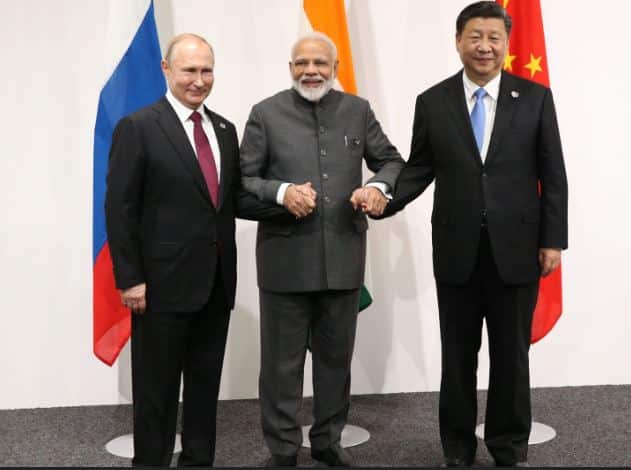Biden administration officials treat Russia as an international pariah and push the global community to unite behind Washington’s leadership to compel the Kremlin to withdraw its forces from Ukraine. The administration’s strategy has been just partially successful. Criticisms of Russia’s actions are relatively easy to find among foreign leaders, but when it comes to outright condemnations—much less endorsements of NATO’s position that the war was unprovoked and entirely Moscow’s fault—governments around the world demur.
They are even less inclined to sign on to the US-led campaign to impose extraordinarily severe sanctions on Russia. Indeed, outside of NATO and the string-of-pearls US bilateral security alliances in East Asia, the support for sanctions is notable for its absence. That was true even during the first month of the war, and it has become even more pronounced since then.
Hudson Institute scholar Walter Russell Mead provides an apt summary of Washington’s lack of success in broadening the anti-Russia coalition beyond the network of traditional US allies. “The West has never been more closely aligned. It has also rarely been more alone. Allies in the North Atlantic Treaty Organization plus Australia and Japan are united in revulsion against Vladimir Putin’s war and are cooperating with the most sweeping sanctions since World War II. The rest of the world, not so much.”
Signs of trouble surfaced almost immediately. On March 2, 2022, the United Nations General Assembly approved a resolution condemning Russia’s invasion of Ukraine and calling for the immediate withdrawal of Russian military forces: 141 countries voted for the resolution, and as US officials were fond of emphasizing, only five voted against.
However, a surprising 35 countries—including 17 African nations—opted to abstain, even though a favorable vote to placate the United States would have been the easy choice. The resolution was purely symbolic, since it did not obligate U.N. members to take any substantive action, yet a significant number of countries in Asia, the greater Middle East, and Sub-Saharan Africa, opted to snub Washington. More than 20 percent of the General Assembly’s membership refused to embrace a purely feel-good measure the Biden administration emphatically wanted passed. From the outset, the US-sponsored global coalition against Russia looked fragile and unenthusiastic. It has become more so with the passage of time.
African countries especially fail to see any advantage for themselves in supporting the West’s policy. Although Washington insists that repelling Russia’s aggression against Ukraine is essential to preserve the “rules based, liberal international order,” governments and populations in Africa see matters differently. To them, the war looks more like a mundane power struggle between Russia and a Western client state. As one African scholar put it: “many in Africa and the rest of the Global South do not regard—and never have regarded—the liberal international order as particularly liberal or international. Nor do they consider it to be particularly orderly, considering how much their countries were turned into spheres of influence and arenas for geostrategic competition.”
More tangible economic interests also push Africa toward neutrality. A June 3 New York Times analysis concluded succinctly: “A meeting on Friday between the head of the African Union and President Vladimir V. Putin of Russia highlighted the acute needs each one hopes the other can fill: Africa needs food, and the Kremlin needs allies.” Indeed, the head of the African Union, President Macky Sall of Senegal, has explicitly called for the lifting of sanctions on Russia.
Read the whole article here.



